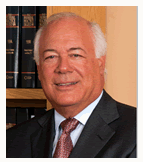Any person under the age of 18 is considered a minor but they aren’t always prosecuted as a minor. Generally, it depends on the type of crime and the severity. The rules in each state are different and researching the current laws in your state regarding prosecuting minors is recommended. The following information is general information that will help explain the situation further.
If your child has committed a crime chances are you have been informed by the police. This initial phone call is frightening to parents and can lead to severe stress and anxiety. Any parent who is under stress usually is focused on protecting their child. Figuring out how your child is going to be prosecuted is a detail an experienced attorney can explain to you in detail.
Generally, there is a process for prosecuting children. Usually, juveniles under the age of 12 that have committed a minor offense are not prosecuted. Parents are contacted and asked to deal with their child to help prevent the situation from happening again in the future.
If a child under the age of 12 years continuously commits minor offenses they can go through a variety of stages such as alerting the parents, attending a juvenile prevention program, youth detention, behavioral program order and more.
The laws in most states try to prevent and deter minors from going down a path of crime. There are usually programs set in place to help with behavioral issues and other situations that lead the juvenile to commit the crime.
These special programs are designed to help the youth and prevent them from continuing the behavior into adulthood. While most youths under the age of 18 are prosecuted as minors, there are certain circumstances that judges might consider the youth to be prosecuted as an adult. Usually, these are severe crimes and the juvenile has a long record as a minor. The court and judge carefully look over the case and criminal history to help determine whether the youth is prosecuted as an adult or minor.
If your child has been arrested for a crime, contact us today for further assistance.
 Roy J. Kahn, with years of legal experience in a wide variety of criminal law, heads a “boutique” firm, which means that your attorney is Roy J.Kahn, not a paralegal. If you have been charged or are about to be charged with a crime—or if you have been contacted to be a witness in a federal grand jury case, you need a qualified defense. You should consult with an attorney immediately and know that you have a right to make no statement until you have consulted with an attorney To contact Mr. Kahn, he can be reached at 305-358-7400.
Roy J. Kahn, with years of legal experience in a wide variety of criminal law, heads a “boutique” firm, which means that your attorney is Roy J.Kahn, not a paralegal. If you have been charged or are about to be charged with a crime—or if you have been contacted to be a witness in a federal grand jury case, you need a qualified defense. You should consult with an attorney immediately and know that you have a right to make no statement until you have consulted with an attorney To contact Mr. Kahn, he can be reached at 305-358-7400.


Recent Comments